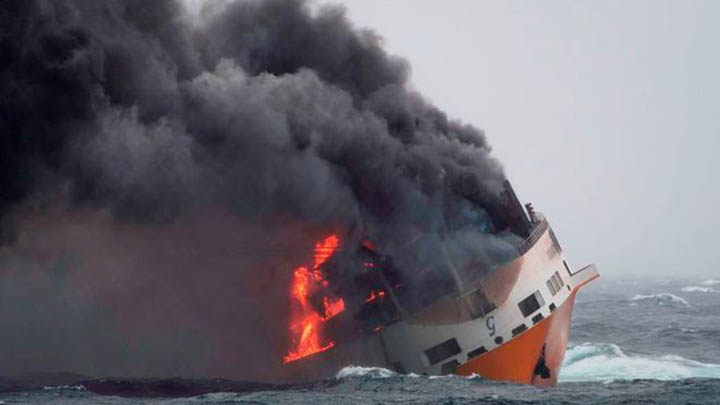Nautilus urges UK government to reinstate funding for CHIRP maritime safety programme
19 August 2019

Nautilus has called on the government to reinstate its funding of the UK Confidential Hazardous Incident Reporting Programme (CHIRP).
In a letter to Nusrat Ghani, Under Secretary of State at the Department for Transport (DfT), the Union’s general secretary Mark Dickinson requested that the Minister 'consider the important, and unique, role' that CHIRP plays in 'ensuring the continued improvement of safety standards in the maritime sector and the need to increase support and awareness of CHIRP's presence.'
The letter has the support of seven leading organisations in the maritime sector including The UK Chamber of Shipping, the National Union of Rail, Maritime and Transport Workers (RMT), Seafarers UK and the National Federation of Fishermen’s Organisations.
The CHIRP maritime programme originally received UK government funding when it was established in 2003 following the success of a similar scheme for the aviation industry.
Funding was withdrawn in 2011 as a result of a Comprehensive Spending Review, however the aviation part of the programme continues to be funded by the Civil Aviation Authority.
The maritime programme has since had to rely on the support of organisations such as Trinity House, Lloyd’s Register Foundation, the ITF Seafarers’ Trust and Seafarers UK.
In his letter the general secretary reminded the DfT of the 'very valuable role' played by CHIRP 'for Aviation and Maritime an independent and confidential system for raising concerns over safety in both modes of transport.'
CHIRP's annual digest reports on hazards across sectors such as pilotage and tugs, passengerships, and yachting taken from the confidential reports it receives and shares in its quarterly publication Feedback.
'The "human factor" is frequently cited as a key element in more than 85% of maritime accidents and CHIRP reports can provide insights into human 'error', procedural problems, systematic shortfalls, and to identify the barriers or action that prevents incidents from developing into major accidents,' Mr Dickinson said.
'CHIRP encourages seafarers to take "ownership" of safety issues by participation in a reporting system that can help to foster wider dialogue, share "best practice", and influence positive change, as well as serving as a useful reminder of hazards in an inherently dangerous industry.'
Emphasising the maritime sector’s desperate need for government CHIRP funding Mr Dickinson said that it seemed 'somewhat at odds that the maritime industry should have to rely on appeals for financial support, when it is an industry with more evident safety problems, and one in which the consequences of an accident - in terms of loss of life, damage to the environment and economic losses - could far outstrip an aviation accident.'
The cost of funding the CHIRP maritime programme would be 'a fraction of the costs of a major shipping accident', Mr Dickinson said.
He called on the government to reconsider its decision to withdraw support and to work with organisations within the sector to highlight the work of CHIRP to encourage improvements in safety standards across the industry for the benefit of seafarers and shipping.
Tags
